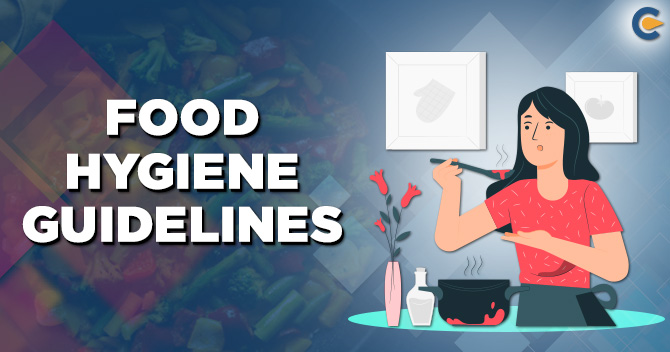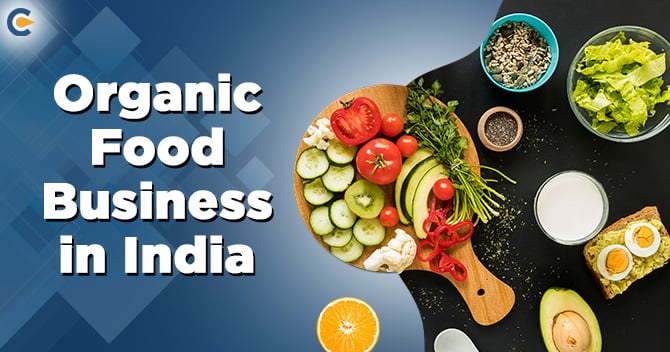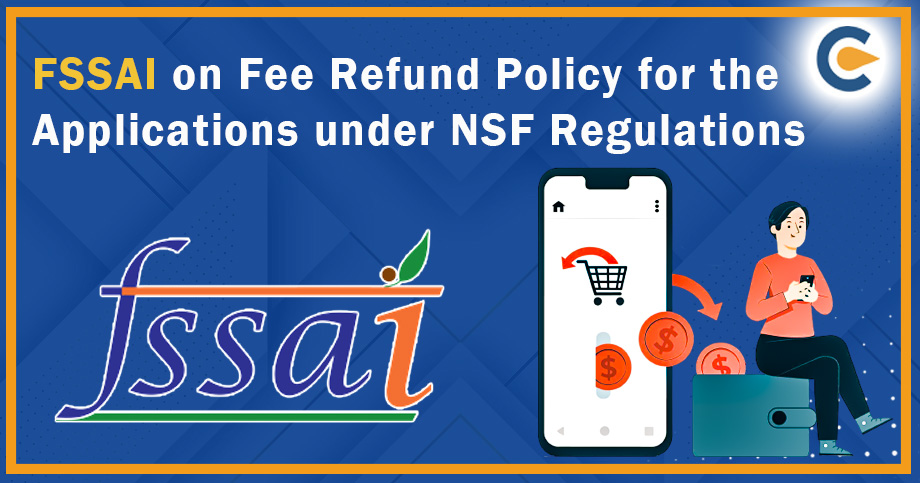All food business operators must follow the food hygiene guidelines and safety norms to extend protection to customers. If food business owners neglect the safety of customers by avoiding the standards related to food hygiene guidelines, then the possibilities of a flare-up of foodborne disease are high. World Health Organization acknowledges that food hygiene and safety is of supreme importance, and following the standard guidelines would prevent the widespread of foodborne disease.
All food-based industries trading in the manufacturing, handling, storing, packaging as well as the distribution of food must follow the standards related to food hygiene and safety. Food business operators belonging to different categories of the food business must abide by the hygienic as well as sanitary practices in order to ensure food safety in the food business activities.
Food Safety Principles in Relation to Food Hygiene Guidelines
Concerning food safety guidelines in India, the World Health Organization has prescribed five essential food safety principles that every person must be aware of and should follow them as well.
- Use Potable Water and Raw Materials
Millions of people in India are suffering due to water-related ailments. Human life requires potable water to stay hydrated and survive illnesses. Try to get access to safe water fit for consumption rather than drinking contaminated water. Be cautious at the time of selecting the raw materials and adopt easy measures like washing and peeling of fruits and vegetables before eating. Prefer processed food for safety reasons and use food before its date of expiry. The quality of damaged food may get worsen due to the presence of toxic chemicals. The inclination of people should be more towards healthy food.
- Thorough Cooking of Food
Food items like seafood, meat, and eggs require thorough cooking. At the time of cooking food, the temperature should reach 70-degree Celsius as it will kill the bacteria and make the food fit for consumption. Proper cooking of food at a suitable temperature and for the appropriate duration would give the death blow to the pathogens.
- Wash and Sanitize your Hand from Time to Time
Rinse your hand after using the toilet as it is the best way through which you will be able to protect yourself from getting sick. At the time of making food and serving food to others, don’t forget to wash your hands. Maintaining cleanliness is vital in the kitchen room and surrounding areas to prevent food from getting in close contact with insects and other animals. Usually, microorganisms get stick to clothes, hands, and kitchen utensils, and contact with food can clear the ways for foodborne diseases to happen. Thus, cleanliness should prevail everywhere in the localities.
- Keep your Food at a Safe Temperature
Protect your customers from foodborne health complications by keeping your food at a safe temperature. Leaving prepared food at room temperature for a duration exceeding two hours would let the microorganisms multiply in number. Thus, don’t leave the cooked food beyond two hours at room temperature. Storing food for too long in a refrigerator is not a wise idea. It would be better for you to refrigerate all perishable and cooked food at a temperature below 5 degrees celsius.
- Prevent Cooked Food Contamination
It’s necessary to separate raw and cooked food as, at the time when food gets prepared, microorganisms in the raw foods like seafood and meat may get transferred and cling to other foods. Also, it would increase the risk of exposure for cooked food to a great degree. Therefore, raw food and other food must get separated. There must be separate kitchen tools and utensils for preparing and managing raw foods.
Read our article:Food Truck Marketing Plan: A Master Recipe That will Help your Business Blossom
The Food Safety and Food Hygiene Guidelines in India
In India, FSSAI is the responsible body for developing different types of Food hygiene legislation. It ensures the availability of safe as well as wholesome food in the country. Under the purview of Food Safety and Standards Regulations, 2011, all food business owners and employers should follow the food hygiene guidelines prescribed by FSSAI.
Location and Areas Surrounding the Food Establishment
- FSSAI has stated in the food and safety regulations that the location of food establishment must be situated at a place far away from those polluted areas where industrial activities and pollution can contaminate the food through dust, harmful pollutants, smoke, odor, and chemical emissions from factories.
- Another noteworthy point is that the manufacturing place where the food articles get manufactured must not be directly accessible from residential zones and areas.
- For dealing in meat and meat products, location of establishment is of paramount importance. Food business operators engaged in meat and meat products business must ensure that their establishment is located close to a meat market and away from the vegetable and other product markets. By ensuring this, they can get an online FSSAI License.
Layout and Design of Food Processing Establishment
- Maintenance of food establishments should be in such a way that plaster of walls must not flake off and ceilings, floors must look in a better condition.
- Another foremost thing that requires adequate control is preventive actions for insects and rodents so that they won’t be able to reach the corporation and enter inside it.
- Selling the articles within the site of the food manufacturing unit is not allowed for any person as the unit is not separate from the place of drainage and urination.
Personal Cleanliness
The food safety and the food hygiene guidelines should ensure that food handlers’ personal cleanliness is an aspect to consider. All food handlers should visit doctors for health checkups on a regular basis. Transmission of diseases or illnesses via food can be problematic for all and even fatal in some cases. Carriers of these diseases shouldn’t get the permit to enter the food establishments and roads around the premises. Food business owners and operators must take the responsibility of food handlers and help them with Food Safety and Hygiene Requirements like-


People visiting the food establishments must also have all these requirements with them.
Food Operations Along with Control Process
Maintaining the temperature for risk-prone foods such as meat and milk products is crucial for ensuring risk-free storage of food products and raw materials. Accurate checking of the expiry date is a must-to-do activity. The food hygiene guidelines and food safety system need to ensure that the food establishment is heedful towards the raw materials procurement.
Containers and Equipments in Order
In order to meet the Food Safety and Hygiene Requirements, proper cleaning and timely disinfecting of equipments are mandatory. As per the food hygiene guidelines in India, “All food establishments should keep their eyes on the containers by timely checking to know whether the condition of containers is hygienic and they are in good shape or not.” They must get created by using materials that can prevent corrosion. Here, the main objective is to protect food against flies, insects, and dust.
Proper Cleaning and Maintenance of Establishments
All food establishments should focus on the maintenance of establishments along with their proper cleaning. Pest control systems and sanitation facilities must abide by the Food Safety and Standard Rules. Conducting a sanitation programme would meet the demand of Food Safety and Standards Rules. Food hygiene and sanitation must be taken care of in a proper manner. At the time of pest treatment, one must not compromise with the quality of food and let it get affected.
Water Supply Facilities and Other Facilities
If food business operators are yearning to obtain a food license in India, then the development of facilities for disinfecting utensils, toilet facilities, lighting services, washing of raw materials, and drainage becomes significant. There must be adequate water supply facilities to prevent foodstuff contamination. At the time of cooking and processing, water fit and safe for everyone should be used.
As FSSAI has given food hygiene guidelines, a food business owner should make sure that all food handlers would march ahead and provide protection to food from contaminations of different kinds. These food handlers are familiar with their roles and responsibilities. Meeting the food safety and quality without any decline in the quality of food is essential.
Food Hygiene Guidelines for Food Businesses amid Covid-19 Outbreak
Food regulator FSSAI[1] issued extensive food hygiene guidelines in the previous month related to hygiene and sanitation practices that food business operators should follow amid Corona Virus disease outbreak. Food handlers serving in food corporations and food businesses must go through these guidelines to restrict the spread of Corona Virus pandemic. Complying with food safety measures to protect food handlers from getting exposed to the virus has become a necessity. In the 14-page food hygiene guidelines, FSSAI has suggested numerous measures that food business operators must undertake. Based on international practices, the guidelines for food safety got set in motion.
Responsibility of Food Business Owners/Operators
- Food handlers and workers must have knowledge about COVID-19 symptoms so that they will take the required actions at the earliest and can go for medical care and testing. By identifying the symptoms at an early stage, they would lessen the risk of infecting co-workers. These natives must get training on social distancing, hand washing with alcohol-based sanitizers and soaps, and safe food handling.
- Employers must pay attention to the workers’ concerns related to health issues, salary, leave, and various other issues that may happen amid the COVID-19 outbreak.
- As per the FSSAI guidelines, Employers must ensure that screening of all the employees and visitors will take place at the entry point under the COVID-19 screening protocol for checking whether the employees and visitors are showing any symptoms like cough, cold, fever or not. Personnel whose temperature is crossing 37-degree Celsius or showing any signs of flu won’t be allowed to enter into the premises.
- Employers must ensure that regular monitoring of employees/food handlers is going on, and they are getting protective gear as well. They should ensure that employees are wearing protective gear and face masks every time to take precautions and adopt preventive measures to prevent COVID-19 spread in the boundaries of establishments. Furthermore, employees should exercise social distancing in the workplace.
- Employees and food handlers need encouragement to declare from their end and intimidate about any respiratory problems before or at the time of the visit to the premises. Such a declaration must provide support to the employees from the employers’ side and job security, especially for the employees falling under low-income groups.
- Large food businesses must have a local emergency response team to check the COVID-19 suspected employees, and one person must get the position of COVID-19 coordinator. All employees must get the contact details of the coordinator.
- If a food handler is COVID-19 infected or is having any connection with COVID-19 infected person, he/she will get the advice to stay at home quarantine for a few weeks and won’t be allowed to put their feet into the premises. He/she can go back to work after getting free from infection.
Standard Sanitation and Hygiene Practices
- Maintaining distance with everyone showing symptoms of respiratory infections like sneezing and coughing
- Regular use of alcohol-based hand sanitizers
- Following proper hand hygiene- using soap and water to wash hands for not less than 20 seconds
- Covering nose and mouth at the time of sneezing and coughing
- Disinfection of door handles, chairs, and table
- Following the hand hygiene protocols in a strict manner
- Employees/food handlers must wear clean protective clothing as well as a face mask
- Covering the face in such a way that there shouldn’t be any gap on chin, mouth and nose
- Changing the face cover after using it for six hours or at the time they get wet, change it
- Removing face cover without touching the outer surface of the face cover
- Discouraging the use of biometric attendance or fingerprint throughout the pandemic period
- Employees must get the training for wearing gloves properly
Food Packaging
Research conducted recently suggests that COVID-19 virus survives for up to four hours on copper, till the duration of 3 days on plastic and stainless steel, and till 24 hours on cardboard. Food businesses must ensure that food handlers engaged in food packaging must practice social distancing and must look after their personal hygiene by following the food hygiene guidelines.
Briefing Up
Food business operators should follow the food hygiene guidelines presented by FSSAI. Following the health and hygiene standard rules would prevent the outspread of foodborne sickness. Amidst the COVID-19 outbreak, there are various responsibilities on the shoulder of food business owners/employers. They must be more careful throughout the pandemic to protect employees as well as visitors. If you want to get an FSSAI license in India, you must run your food establishments in accordance with the food safety and food hygiene guidelines. Always remember that negligence of laws and guidelines is not the smart solution at all.
Read our article:How can an Online Food Ordering System make your brand create milestones?











